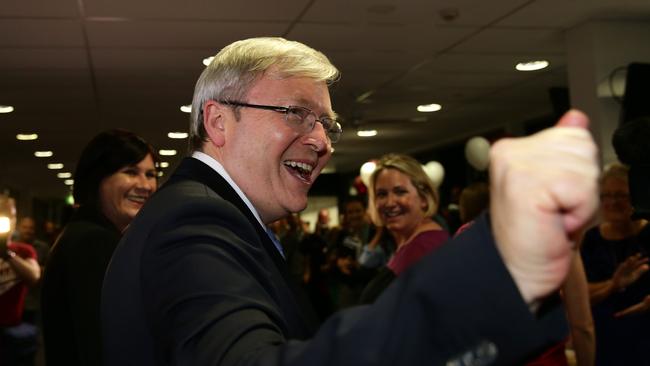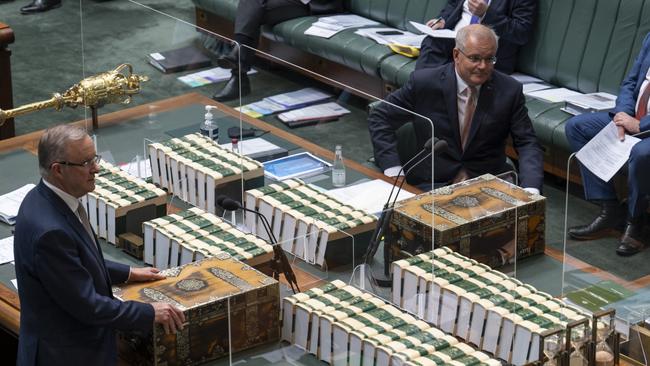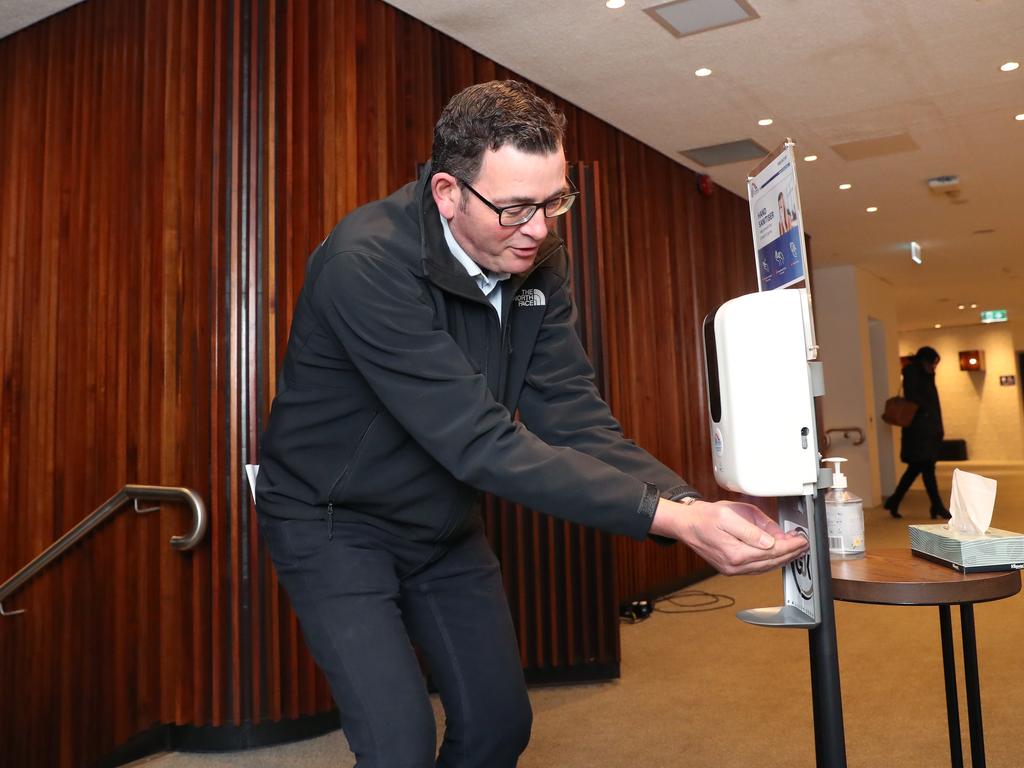The fall and fall of the politicalclass
Professionalisation has become an agent for disconnecting those who represent us from the mainstream.

The decline of the political class is accelerating, which in turn is diminishing institutions and processes, as well as killing off the moments in history when leaders can leave their mark by standing up for what they believe in.
In the past, political leaders could rely on a robust public culture based on political parties with deep roots in the labour movement, the business community, and the professions. The era of the mass political party is behind us now. Gone are the days of major parties with hundreds of thousands of members who reflect the views and values of millions of their countrymen and women. At first, this shift was held up by political scientists as a consequence of the professionalisation of politicking and perhaps not a bad thing. Rather than relying on mass party memberships to spread the word and campaign, major parties crafted themselves around professionals: pollsters, party officials and a growing cohort of staffers. Such professionalism was seen as a good thing, but it soon had perverse implications, such as the politicisation of the public service.
The consequences of the shift has largely been negative. The Labor and Liberal parties are now shadows of their former selves, dedicated to advancing the interests of career politicians instead of bringing leaders and policies from the whole of society into the highest reaches of public power. Professionalisation became an agent for disconnecting those who represent us from the mainstream. It has therefore added to societal divisions, rather than addressed them meaningfully.
Widespread loyalty to parties once gave political leaders a head start in their efforts to win majority support for any given policy. The nation was made and remade a number of times throughout the 20th century. But voter dealignment now sees a larger voting centre willing to pivot between parties. To be sure, some of these swinging voters think for themselves, rather than blindly follow, but it is the less virtuous reaction from the politicians that is decaying the system. In chasing these voters, political leaders all too regularly abandon what few convictions they still have. Following is easier than leading.
Today, governments start with a smaller base of support and must compete with a cacophony of media-savvy interest groups, think tanks and corporate PR for public attention. Money talks, cancel culture often wins out, the noisy few misrepresent themselves as the mainstream worth listening to.
More importantly, the combination of compulsory voting and new media often puts elections in the hands of voters either disenchanted or simply uninterested in political debate. Not that the disenfranchising of so many in non-compulsory voting systems is necessarily a better way to go.

Australia is increasingly divided between a handful of politics tragics who have any number of ways to satisfy their thirst for political news, and a growing group of voters who can shut news about politics out of their lives altogether. Trying to understand and reach these voters through focus groups and spin is simply no substitute for a political party with deep connections to civil society. That is how communities really get heard in a liberal democracy, not just via the ballot box once every three years as an elected dictatorship. This lost connection between politicians and those they are supposed to serve is at the heart of the demise of the political class, not just here in Australia but to greater and lesser extents right around the democratic world.
More than a decade’s worth of leadership instability might be a sign of things to come in the way that our political culture will have to evolve in order to build majority support in an evermore complex and diverse society. Not that there appears to be a brighter side when leadership stability returns. Scott Morrison is the first Prime Minister since John Howard to enjoy certainty in the job during his time in office. But he is a long way from matching the convictions of Howard. Even modern leaders, safe from the knives of colleagues, may no longer be prepared to present as conviction politicians.
There is little sign that the present generation of political leaders is up to the task before them. The public relations machinery that governments now rely on have left political leaders unable to make an argument in defence of good but unpopular policy. Populism is now the defining trait of political leadership.
The Rudd government, which began with lofty promises of “evidence-based policy”, launched the nation’s biggest infrastructure project on the strength of back-of-the-envelope arithmetic. The Gillard government was more productive despite the hung parliament, yet received no popular credit for its achievements.
Meanwhile, the Coalition parties exemplify the lack of depth in Australia’s political talent on an almost daily basis.
Recently, the importing of American cultural politics has added a toxic flavour to Australian political debate, which few Liberals have the guts to challenge. The party’s know-nothing approach to science would have appalled Robert Menzies, whose government oversaw a tenfold increase in funding for the CSIRO. The Coalition is left with Howard’s wedge tactics but none of his policy substance. Morrison is now shamelessly overseas spruiking an embarrassingly unfit-for-purpose emissions policy.
How will our timid, populist political leaders deal with the numerous challenges facing Australia? Not well, most likely. It is now a vicious cycle. Careerists who lack convictions choose politics as a vocation. It is no longer a calling. Their backgrounds are limited. Hollowed-out political parties turn preselections into insider affairs, ensuring the narrowness of the gene pool in parliament. The media is fixated on the horse race of politics, yet convinces itself of its virtuousness by targeting contradictions and broken promises. That focus only elevates voter cynicism, reducing trust, as well as discouraging politicians from following the advice of John Maynard Keynes and changing their minds when the facts change. Risk aversion dictates the day, killing off bold or innovative policy.
In short, we’ve become hostage to managerial leadership by political leaders with no pre-parliamentary career track record of good management to speak of. Uninspiring and selfish, but it’s not all their fault. The media and the public must share the blame. The decline of the political class is a collective failure.
Peter van Onselen is a professor of politics and public policy at the University of Western Australia and Griffith University.







There was never really a golden age for Australian politicians, however much we tend to look back at different eras with rose-coloured glasses. The political class has always been trusted about as much as used car salesmen. The proceeds of mining booms have been squandered many times before. They’ve certainly always broken promises, and they have long been hypocritical. But the situation does appear to be getting worse.